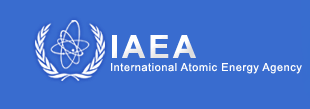Speaker
Mr
Klaus Schoepf
(Austria)
Description
Resonant magnetic perturbations (RMPs) have become a powerful tool for modifying dge transport properties and for plasma stability control in present day tokamaks. The transport behaviour of charged fusion products as altered by these perturbations can be regarded as a crucial point for approving the application of RMPs in future tokamak reactors. Our present study focuses on fusion alpha particle losses driven by resonant magnetic perturbations which are used for mitigation or complete suppression of ELMs. For the simulation of the dynamics of an alpha particle ensemble we employ a Monte-Carlo approach. Resonant magnetic perturbations are shown to result only in a small enlargement of first orbit losses of charged fusion products from tokamak plasmas. On the other hand RMPs can substantially affect the confinement of partly thermalised alpha particles. Thus a significant impact is observed on alphas with energies below 70 keV, where RMPs enhance the alpha loss by about 30%. The main physical mechanisms responsible for increased alpha particle losses are induced by reconnection of magnetic field lines and by Coulomb collisions. The formation of magnetic islands together with the stochastic magnetic layers at the plasma edge is a natural consequence of RMP excitation. It was demonstrated that, due to the formation of these resonant magnetic field structures, irregularities of the energetic alpha particle orbits occur, which lead to a substantial increase of alpha particle losses from the plasma periphery. It is noted that the enhanced alpha particle losses during RMPs application may be viewed as a positive phenomenon from the point of view of helium ash removal.
Collaboration (if applicable, e.g., International Tokamak Physics Activities)
ITPA
Country or International Organization of Primary Author
Ukraine
Author
Dr
Yuliya Moskvitina
(National Science Center "Kharkov Institute of Physics and Technology")
Co-authors
Mr
Anton Moskvitin
(Karazin National University, Kharkiv)
Mr
Klaus Schoepf
(Austria)
Dr
Oleg Shyshkin
(Karazin National University, Kharkiv)

